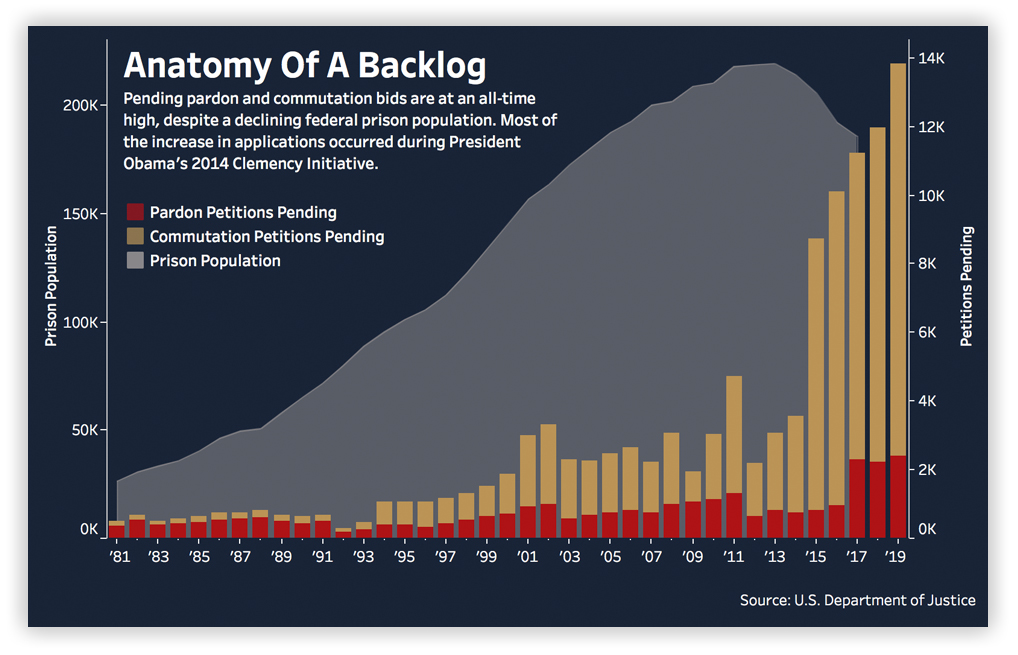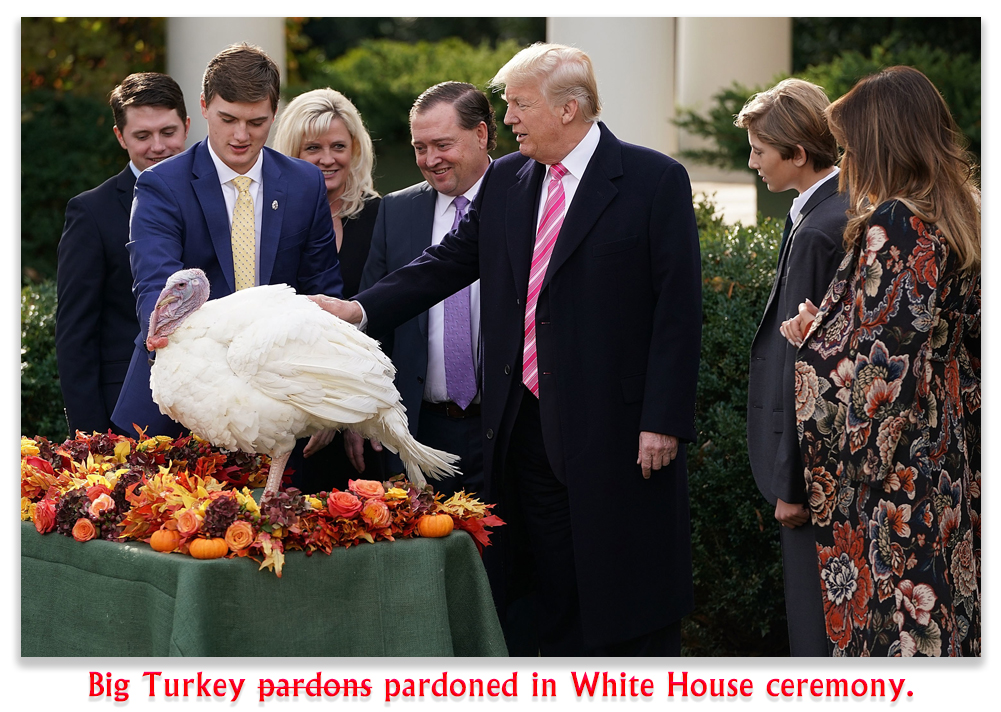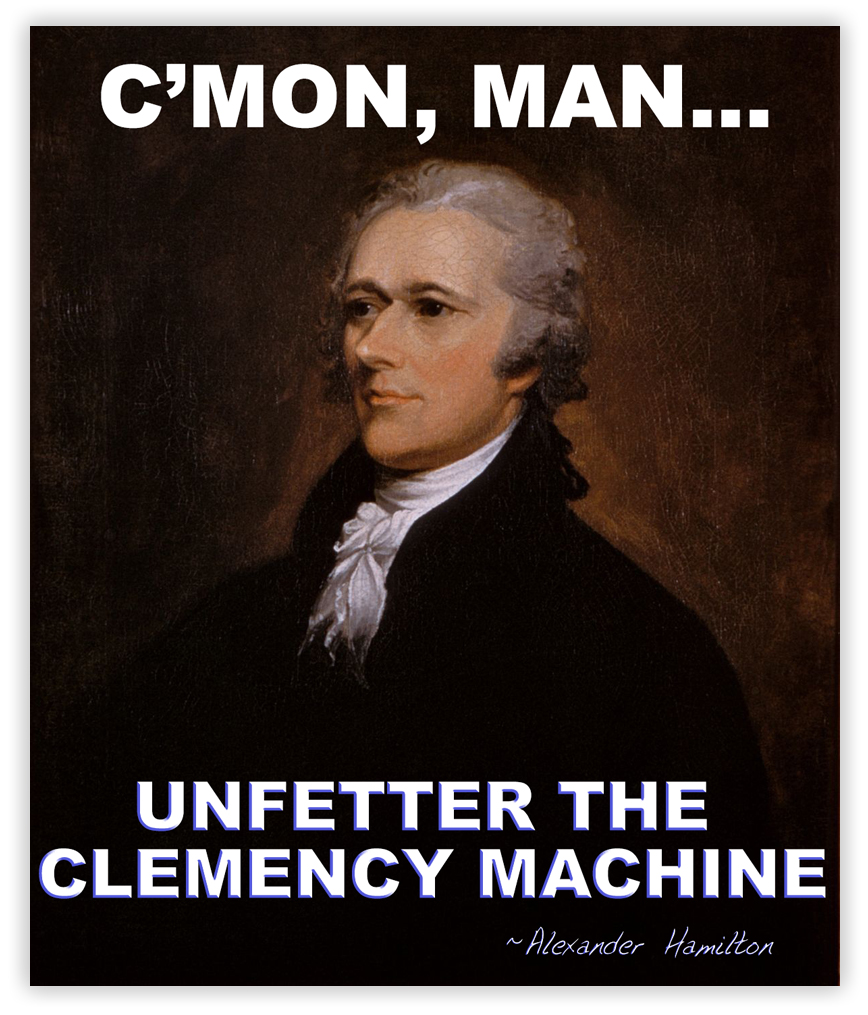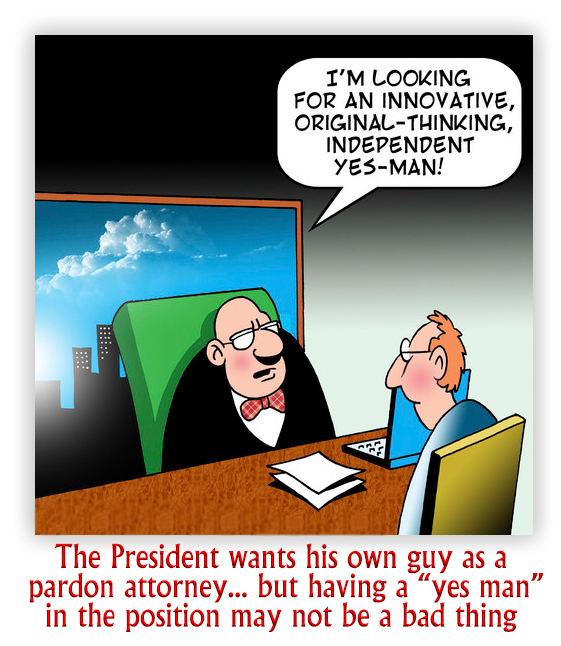We post news and comment on federal criminal justice issues, focused primarily on trial and post-conviction matters, legislative initiatives, and sentencing issues.

SUPER BOWL TRUMP AD SPARKS CLEMENCY DEBATE
President Donald Trump’s Super Bowl ad featuring former federal inmate Alice Johnson fired off a storm of argument last week about clemency and sentencing reform. But the stats and the stories hardly suggest any change in the broken is coming very soon.
 Trump stoked inmate expectations in 2018 when he freed Johnson, who had been doing life for a drug conspiracy, after reality star Kim Kardashian argued on her behalf during a White House visit. In fact, the day after Trump commuted her sentence, Trump told reporters, “We have 3,000 names. We’re looking at them. Of the 3,000 names, many of those names really have been treated unfairly… And I would get more thrill out of pardoning people that nobody knows.”
Trump stoked inmate expectations in 2018 when he freed Johnson, who had been doing life for a drug conspiracy, after reality star Kim Kardashian argued on her behalf during a White House visit. In fact, the day after Trump commuted her sentence, Trump told reporters, “We have 3,000 names. We’re looking at them. Of the 3,000 names, many of those names really have been treated unfairly… And I would get more thrill out of pardoning people that nobody knows.”
Those thrills have yet to be realized. Since he took office, Trump has granted clemency to only 24 people, with all but five of those people having had “a line into the White House or currency with his political base,” according to piece last week in The Washington Post. “As the administration takes its cues from celebrities, political allies and Fox News,” the Post complained, “thousands of other offenders who followed Department of Justice rules are waiting, passed over as cases that were brought directly to Trump leaped to the front of line.”
The Post noted that for more than 125 years, the DOJ’s Office of Pardon Attorney “has quietly served as the key adviser on clemency, one of the most unlimited powers bestowed by the Constitution on the president. Under Trump, the pardon office has become a bureaucratic way station…” Most of Trump’s grants of clemency have gone to well-connected offenders who had not filed petitions with the pardon office or did not meet its requirements, The Post said.
 After three years in office, The Post said, Ronald Reagan issued 669 clemency decisions and Obama issued 3,993 petitions between 2009 and 2012, but “Trump has ruled on only 204 clemency requests – 24 approvals and 180 denials. That is the slowest pace in decades.”
After three years in office, The Post said, Ronald Reagan issued 669 clemency decisions and Obama issued 3,993 petitions between 2009 and 2012, but “Trump has ruled on only 204 clemency requests – 24 approvals and 180 denials. That is the slowest pace in decades.”
The Post’s hagiographic portrayal of the OPA focuses on the wrong metric. Sure “Obama issued 3,993 petitions” in his first three years, but as Reason magazine pointed out last week, those were virtually all denials. So far Trump has commuted just six sentences, “but that is actually six times as many commutations as Obama approved during his first term,” Reason noted.
For decades, federal offenders filed petitions for clemency with the OPA, which assigns a staff attorney to investigate each case. With an annual budget of about $4.5 million, the pardons office employs about 19 people, including 11 attorneys.
“For pardons,” The Post said, “the office looks for acceptance of responsibility and good conduct for a substantial period of time after conviction, among other considerations, according to justice department guidelines. Commutations hinge on the undue severity of a sentence, the amount of time served and demonstrated rehabilitation.”
Former Pardon Attorney Larry Kupers said, “We had impartial lawyers who developed over time an expertise in evaluating applications and the skills to determine whether this is a person who could be a danger to the public. If you leave it to the White House, you are more likely to get arbitrary, capricious pardons that may be perfectly legal but are not what the Founding Fathers had in mind.”
 The OPA, of course, is run by DOJ, the very people who prosecuted the people applying for clemency. Sort of the fox being delegated authority to look after the chickens’ welfare. Experts have noted the conflict of interest: an Atlantic article published a year ago complained, the DOJ process “courses through seven levels of review, much of it through a hostile… bureaucracy that tends to defer to local prosecutors who are, in turn, loath to undo the harsh sentences they sought in the first place. Indeed, the First Step Act passed in spite of DOJ opposition because those same prosecutors objected to lowering the mandatory minimum sentences that give them so much bargaining power.”
The OPA, of course, is run by DOJ, the very people who prosecuted the people applying for clemency. Sort of the fox being delegated authority to look after the chickens’ welfare. Experts have noted the conflict of interest: an Atlantic article published a year ago complained, the DOJ process “courses through seven levels of review, much of it through a hostile… bureaucracy that tends to defer to local prosecutors who are, in turn, loath to undo the harsh sentences they sought in the first place. Indeed, the First Step Act passed in spite of DOJ opposition because those same prosecutors objected to lowering the mandatory minimum sentences that give them so much bargaining power.”
Meanwhile, the numbers remain sobering. Trump inherited a backlog of more than 11,300 petitions. Nearly 7,600 more have been filed since Trump took office. About 5,900 petitions have been closed during Trump’s tenure because the inmate was released, died or was ineligible. Thus, nearly 13,000 petitions remain pending.
Ohio State University law professor Doug Berman said last week in his Sentencing Law and Policy blog, “it is a darn shame that Prez Trump is promoting his clemency work when he has still granted relatively few commutations. Regular readers likely recall that, back in 2018, Prez Trump talked grandly about considering thousands of clemency requests and Alice Marie Johnson potently advocated that the President free ‘thousands more’ federal prisoners like her. I never really expected Prez Trump to grants thousands of commutations, but I had hoped he would do many more than the six that he has done so far.”
Washington Post, Most Trump clemency grants bypass Justice Dept. and go to well-connected offenders (Feb. 3)
Reason.com, Does Trump’s Super Bowl Ad Signal More Progress on Sentencing Reform? (Feb. 3)
The Atlantic, The Clemency Process Is Broken. Trump Can Fix It (Jan. 15, 2019)
Sentencing Law and Policy, Prez Trump’s reelection campaign premieres ad focused on criminal justice reform during Super Bowl (Feb. 2)
– Thomas L. Root


 “The clemency process,” she argued, “must be completely independent of the system employed to incarcerate millions of people. A first step is an independent commission with representation from all stages of the criminal justice system, including those who are formerly incarcerated, prosecutors, defense lawyers, corrections experts, and members of the public with appropriate resources to review the inevitable deluge of petitions from the masses. Independence would ensure that one actor could not put a thumb of the scales of justice, as is the case in our current system, where the same person who prosecuted the case in the Department of Justice has this power.”
“The clemency process,” she argued, “must be completely independent of the system employed to incarcerate millions of people. A first step is an independent commission with representation from all stages of the criminal justice system, including those who are formerly incarcerated, prosecutors, defense lawyers, corrections experts, and members of the public with appropriate resources to review the inevitable deluge of petitions from the masses. Independence would ensure that one actor could not put a thumb of the scales of justice, as is the case in our current system, where the same person who prosecuted the case in the Department of Justice has this power.” In other words, an office of the very agency that offered the plea deal, and then advocated for a very harsh sentence when the deal was rejected, should not urge the President to grant clemency to a prisoner based on the agency’s own conduct.
In other words, an office of the very agency that offered the plea deal, and then advocated for a very harsh sentence when the deal was rejected, should not urge the President to grant clemency to a prisoner based on the agency’s own conduct. 















